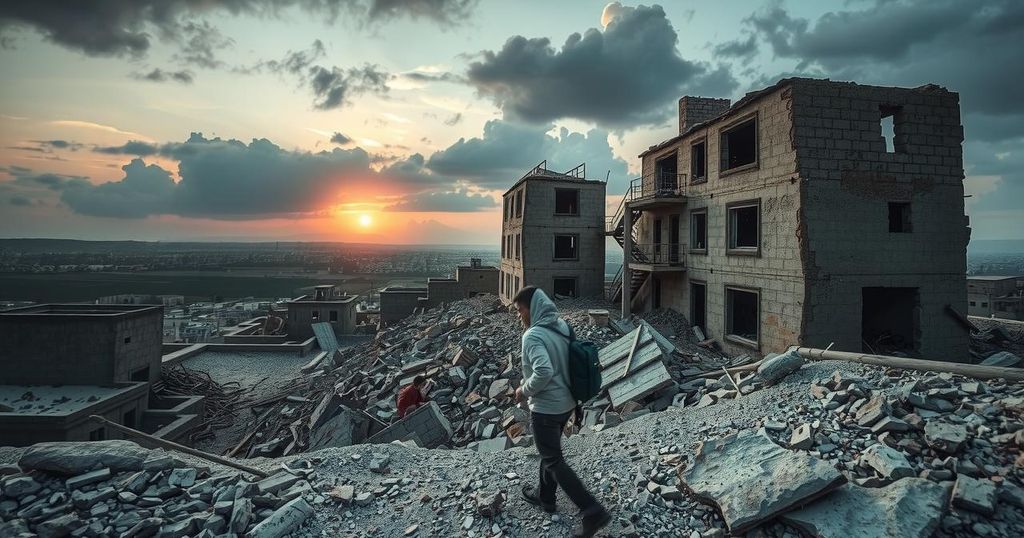Severe Humanitarian Crisis as Nearly 3,000 Killed in Goma, DRC

The UN reports nearly 3,000 deaths in Goma, DRC, due to rebel violence, with ongoing clashes despite a declared ceasefire. Local authorities and the international community accuse Rwanda of backing the M23 rebels, leading to heightened tensions in the region, where control over mineral-rich lands fuels relentless conflict.
According to the United Nations, nearly 3,000 people have lost their lives in Goma, Eastern Democratic Republic of Congo (DRC), following a fierce assault by rebel groups, specifically the Alliance Fleuve Congo (AFC), which includes the M23. Vivian van de Perre, the deputy head of the UN mission in DRC, reported that 2,000 bodies have been retrieved from Goma’s streets, while 900 are still located in morgues, with expectations that this figure may rise due to the presence of decomposing bodies in various locales.
In light of the humanitarian crisis instigated by the conflict, the AFC announced a ceasefire. However, the DRC government dismissed it as “false communication,” with ongoing clashes in South Kivu reported. The DRC, home to over 100 million people, is plagued by longstanding violence fueled by ethnic tensions and disputes over land and mineral resources, creating a significant humanitarian crisis.
Congo, alongside the United States and UN experts, has accused neighboring Rwanda of supporting the M23 group, primarily made up of ethnic Tutsis who defected from the Congolese army. While Rwanda denies these allegations, it acknowledges its military presence in Eastern Congo to ensure its national security. President Paul Kagame stated that he could not confirm the existence of Rwandan military forces in Congo but asserted that Rwanda would take necessary measures to protect itself.
Since 2022, the M23 has reignited its rebellion against the Congolese government, seizing territory in North Kivu, a region abundant in minerals such as coltan, essential for electronic devices. Recently, there has been persistent fighting along routes toward South Kivu’s capital, Bukavu, raising concerns about stability in the area.
The UN has expressed grave concern regarding the security of critical infrastructures, such as Kavumu airport in Bukavu, as rebel forces advance. Despite the rebel coalition’s claims of not intending to capture Bukavu, tensions escalate, as they continue to capture strategic locations within the eastern mineral-rich region, with ambitions to reach Kinshasa, the national capital, located approximately 930 miles away.
Reports indicate that the rebels are consolidating control in Goma and have intentions of establishing a new administration. The Congolese government has not confirmed the rebel takeover, but it acknowledged their presence, with a recently appointed military governor emphasizing the state of siege in North Kivu. The situation remains volatile, with all escape routes controlled by the rebels, exacerbating the humanitarian crisis as thousands are displaced and seeking refuge at UN peacekeeping bases.
The conflict in the Democratic Republic of Congo has deep historical roots, involving ethnic tensions and competition for access to rich mineral resources. Over the years, various rebel groups have engaged in violent confrontations with the Congolese army, leading to widespread atrocities and humanitarian crises. The resurgence of the M23 group has reignited fears of escalating violence, particularly in areas rich in minerals that are vital for global technology production, underscoring the ongoing instability in the region.
The situation in Goma is dire, with nearly 3,000 fatalities reported amidst ongoing clashes between rebel forces and the Congolese army. Although a ceasefire was announced by the rebels, fighting persistently continues, raising alarm over the humanitarian implications in the affected regions. The international community remains concerned about the potential repercussions of this conflict, particularly with regional implications involving Rwanda.
Original Source: keyt.com








